Prohibition Blu-ray Movie
HomeProhibition Blu-ray Movie 
PBS | 2011 | 360 min | Rated TV-PG | Oct 04, 2011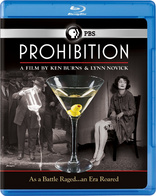
Movie rating
7.5 | / 10 |
Blu-ray rating
| Users | 0.0 | |
| Reviewer | 4.0 | |
| Overall | 4.0 |
Overview
Prohibition (2011)
Prohibition is a three-part, five-and-a-half-hour documentary film series that tells the story of the rise, rule, and fall of the Eighteenth Amendment to the U.S. Constitution and the entire era it encompassed.
Director: Ken Burns| Documentary | 100% |
Specifications
Video
Video codec: MPEG-4 AVC
Video resolution: 1080i
Aspect ratio: 1.78:1
Original aspect ratio: 1.78:1
Audio
English: Dolby Digital 5.1
Spanish: Dolby Digital 2.0
Subtitles
English, Spanish
Discs
25GB Blu-ray Disc
Three-disc set (3 BDs)
Playback
Region A (locked)
Review
Rating summary
| Movie | 4.0 | |
| Video | 3.5 | |
| Audio | 3.0 | |
| Extras | 3.0 | |
| Overall | 4.0 |
Prohibition Blu-ray Movie Review
The driest Ken Burns documentary yet, so to speak.
Reviewed by Casey Broadwater October 12, 2011Ken Burns deserves some sort of official title--Documentarian Laureate of the United States, maybe, or Head Chronicler of the American Experience. In
his thirty-year career he's made an art out of examining and summarizing key influential elements of our collective national culture, from
Baseball to Jazz, The National Parks to his most famous mini-series, The Civil War. His latest production for PBS,
Prohibition, explores a civil strife of a different sort--the war between the "wets" and the "dries" that led to the banning of alcohol in America
between 1920 and 1933. Prohibition was called "the noble experiment," but it failed utterly with a bunk hypothesis about the government's ability to
legislate and enforce morality, and end results that were the complete opposite of what its proponents initially set out to achieve.
Mark Twain once said, "It is the prohibition that makes everything precious," and that was certainly true of alcohol in the 1920s, becoming a coveted
black-market commodity, turning ordinary citizens into criminals, and giving the real criminals a new line of illegal business. In his three-part,
five-and-a-half-hour film, Burns and co-director Lynn Novick document the rise and fall of prohibition with photographs, archival film footage, and the
input of historians, celebrity voiceover actors--like Tom Hanks, Paul Giamatti, Jeremy Irons, Samuel L. Jackson, and John Lithgow--and common folk
who are old enough to remember the era. If you've been watching HBO's Boardwalk Empire, which covers some of the same territory
dramatically, this makes a fantastic companion piece, enlightening and extremely relevant.
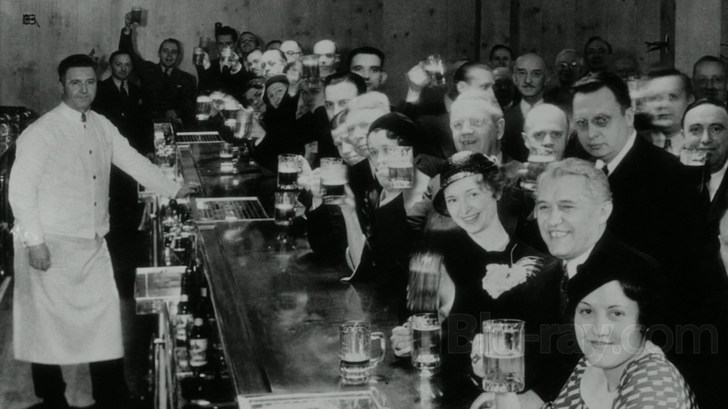
Cheers...
In the first episode, A Nation of Drunkards, Burns begins by noting that everyone drank in early America, the religious and socially conservative included. The hull of the Mayflower was filled with caskets of beer. Abraham Lincoln sold whiskey. John Adams, we're told, began each day by nursing a tankard of hard cider. In some parts of the country, alcohol was much safer to drink than the unfiltered local water. But increasingly, alcoholism came to be a problem, especially in the working classes, as men blew their wages in saloons, leaving their wives and children to fret over how to get by. As one historian puts it, "Alcohol consumption was a sign of masculinity that took away masculinity." In response, reform organizations began cropping up across the country. The Washingtonian Socialites, a "society of reformed drunkards," had meetings where men would tell their stories of alcohol abuse and encourage each other to stay on the wagon--a kind of precursor to Alcoholics Anonymous.
Many of these early good temperance societies were started by women, and teetotalism became a twin cause alongside suffrage. Female firebrand Carrie Nation was known to storm into saloons with a hatchet, busting mirrors and breaking bottles. Mary Hunt and Francis Willard of the Women's Christian Temperance Union proposed universal bans on liquor and lobbied for anti-alcohol education in public schools, where kids were propagandized with ridiculous misinformation. They were joined in their efforts by the Anti-Saloon League, which existed for a sole purpose: to ban alcohol completely. The movement needed a catalyst, though, and it arrived in the form of the anti-German sentiment rampant during WWI. As most of America's beer manufacturers were German, beer became linked with treason in the public and political consciousness, essentially poisoning the well against the arguments of the "wets." In 1919, Congress passed the 18th Amendment and the Volstead Act--effectively barring the sale, manufacture, and transportation of alcohol--and nationwide prohibition went into effect at the beginning of 1920.
Of course, this did little to stop people who wanted to drink from drinking, and in part two, A Nation of Scofflaws, Burns examines the ways in which "wets" exploited loopholes in the law. Suddenly, doctors were writing lots of prescriptions for "medicinal whiskey"--the parallels to current marijuana laws start to come into focus here--and priests and rabbis were stocking up on so-called "sacramental" wine. Grape growers even began selling bricks of concentrate that carried a specific and instructional warning: "After dissolving the brick in a gallon of water, do not place the liquid in a jug away in the cupboard for twenty days, because then it would turn into wine." Anheiser-Busch sold malt extract that could similarly be fermented and made into beer. Moonshine and its more urban equivalent, "bathtub gin," became rampant. One enterprising family even drove around in a milk truck, discretely dropping of their homebrew to customers in bottles painted white.
Burns also charts the rise of the bootleggers and gangsters who realized there were big bucks to be made selling illegal liquor, and this is where the mini-series really starts to get interesting. Because many Americans viewed prohibition as needless, irrational, and even immoral, some of these black- market opportunists were seen almost as Robin Hood figures, breaking the law to the give the people what they want. Former Seattle cop Ray Olmstead became known as the "King of the Puget Sound Bootleggers," bribing officials up and down the coast and making in one week what it would've taken him 20 years to earn as a policeman. Rum-runner William McCoy could make a cool fifteen grand in one trip between Cuba and Florida. Al Capone used the moneymaking possibilities of prohibition to create "an empire of prostitution, gambling, racketeering, and booze." These guys were turning the system against itself and there wasn't much the government could do about it. The problem was enforcement; it was simply too big a task.
Part three, A Nation of Hypocrites, details the ultimate demise of prohibition, which had ironically brought about the very change in society that it had originally sought to halt. Instead of stamping out alcohol altogether, the ill-fated movement made it more fashionable than ever. Saloons were replaced by secretive speakeasies, where jazz was born and bred and where the daughters of the women who fought so tirelessly for prohibition evolved into flappers--liberated, openly sexual, cocktail-sipping modern women. Celebrated in pre-Hays Code Hollywood movies, drinking became glamorous, high culture, a sign of sophistication. Meanwhile, in the streets of America's big cities, the "beer wars" were erupting between bootlegging outfits vying for control. After the bloody St. Valentine's Day Massacre of 1929 and a rash of similar shootings, major crime bosses from around the country got together in Atlantic City to propose a truce and divvy up territory, and organized crime was born. Still, the "dries" doggedly refused any changes to prohibition law. But with the onset of the Great Depression and a political regime change ushered in by Franklin D. Roosevelt's presidency, it became clear that prohibition was not only a spectacularly expensive and counterproductive failure, it was also a trampling of American liberties. Burns doesn't even mention the ongoing war on drugs or marijuana laws, but he doesn't have to--the parallels are clear.
Prohibition Blu-ray Movie, Video Quality 
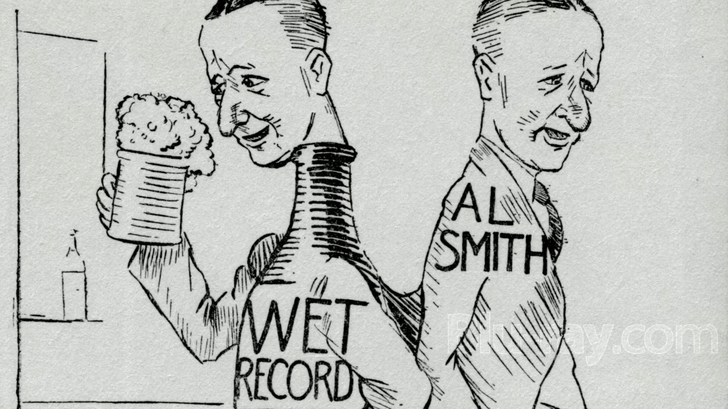
Prohibition arrives on Blu-ray with what's essentially a slightly-better-than-broadcast-quality 1080i/AVC-encoded transfer. That is, if you saw the
show on PBS last week, you can expect a similar appearance, but with fewer of the compression artifacts you get over cable TV. As you'd expect, the
archival footage used here is of varying quality, some of it fairly clean and clearly transferred in high definition, while other clips are obviously from
standard definition sources. All of the vintage photographs look wonderful, though, and they're given a sense of slide/pan/zoom movement with what's
come to be known as the "Ken Burns Effect." The "talking-head" interviews with historians are shot on 16mm, and they look suitably sharp and
accurately colored, although you will notice some harsh grain buzzing in the dark backgrounds. You'll also spot periodic aliasing in some of the photos and
footage, as well as macroblocking in the upconverted standard definition material. It is what it is, basically, but there's really nothing here that will
outright distract from your enjoyment of the series.
Do note that all screenshots in this review were captured in 720p, as it was too difficult to take usable shots in 1080i.
Prohibition Blu-ray Movie, Audio Quality 
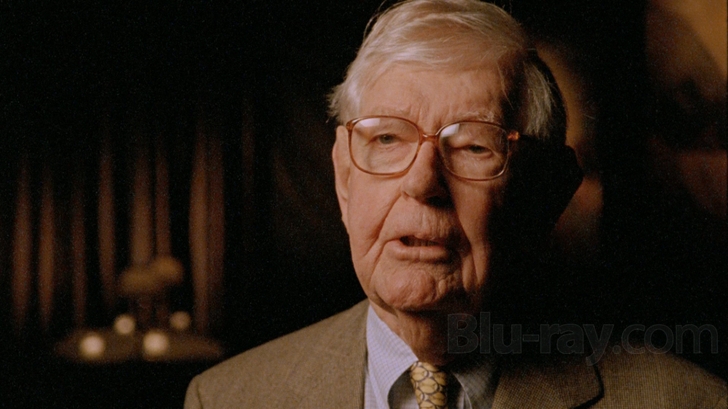
Unfortunately, there are no lossless or uncompressed audio options here, just the default English Dolby Digital 5.1 surround track and a 2.0 Dolby Digital Spanish dub. Could the mix sound brighter, cleaner, and richer if presented in a lossless format? Almost certainly, but it ultimately doesn't matter that much. This is, after all, a rather talky documentary, and besides occasional sound effects like gunshots and breaking bottles, the mix consists almost solely of dialogue and fairly quiet music. The interviewees' voices are always clear and easy to understand, and the appropriately old-timey soundtrack-- which consists of original pieces by composer David Cieri and jazz legend Wynton Marsalis--complements the film wonderfully. Most of the audio is planted in the front channels, but you will hear some sound effects and music in the rears. I did notice a quiet hiss in the back channels from time to time, but nothing excessive. The disc includes optional English and Spanish subtitles.
Prohibition Blu-ray Movie, Special Features and Extras 
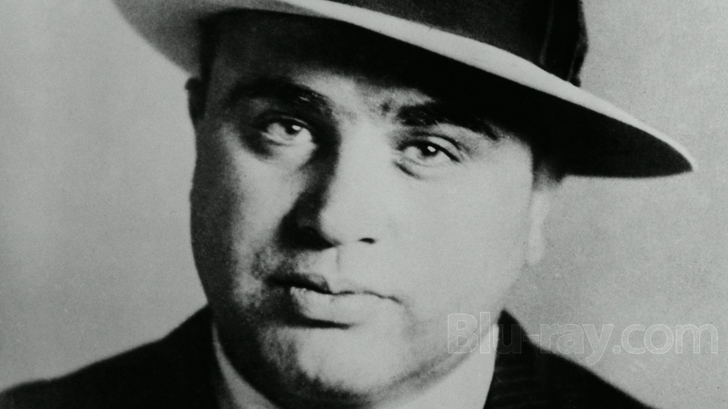
- In the Studio with Florentine Films (1080i, 7:39): A short behing-the-scenes piece showing Wynton Marsalis and his band at work in the studio, along with interviews with Ken Burns and co-director Lynn Novick.
- Bonus Scenes (SD, 27:24): Eight scenes that didn't make it into the final broadcast.
- Interview Outtakes (SD, 57:47): Nearly an entire hour of additional Interview material, expanding on topics covered in the film.
Prohibition Blu-ray Movie, Overall Score and Recommendation 
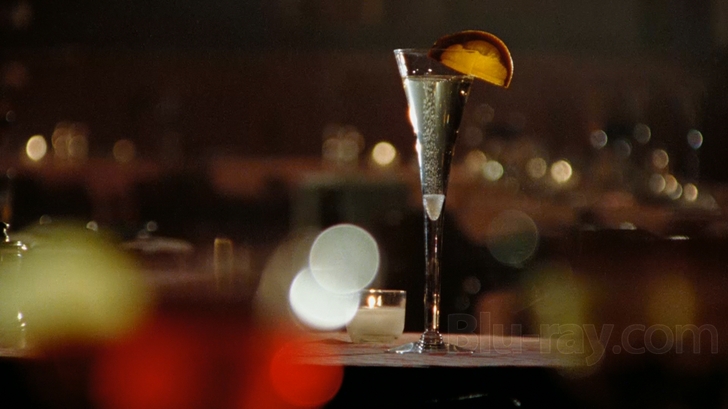
Like all Ken Burns documentaries, Prohibition is educational and entertaining, thoughtfully researched and professionally produced. The subject matter is also exceedingly relevant to politics today, as there are clear parallels between prohibition and numerous current hot-button issues, most notably the ongoing controversy over the possible legalization of marijuana. If you missed the film when it aired on PBS, or just want to watch it again, this Blu-ray release is the way to go. Recommended!
Similar titles
Similar titles you might also like

Fahrenheit 11/9
2018

Waiting for "Superman"
2010

American Experience: Into The Deep - America, Whaling & The World
2010

Whitey: United States of America V. James J. Bulger
2014

Roger & Me
1989

Capitalism: A Love Story
2009

Inside Job
2010

The Fog of War: Eleven Lessons from the Life of Robert S. McNamara
2003

The Gatekeepers
2012

America: Imagine the World Without Her
2014

The Dust Bowl
Ken Burns
2012

The Great Buster: A Celebration
2018

Studio 54: The Documentary
2018

An Inconvenient Sequel: Truth to Power
2017

I Am Not Your Negro
2016

For the Love of Spock
2016

Where to Invade Next
2015

The Wolfpack
2015

Fahrenheit 9/11
2004

Food, Inc.
2008